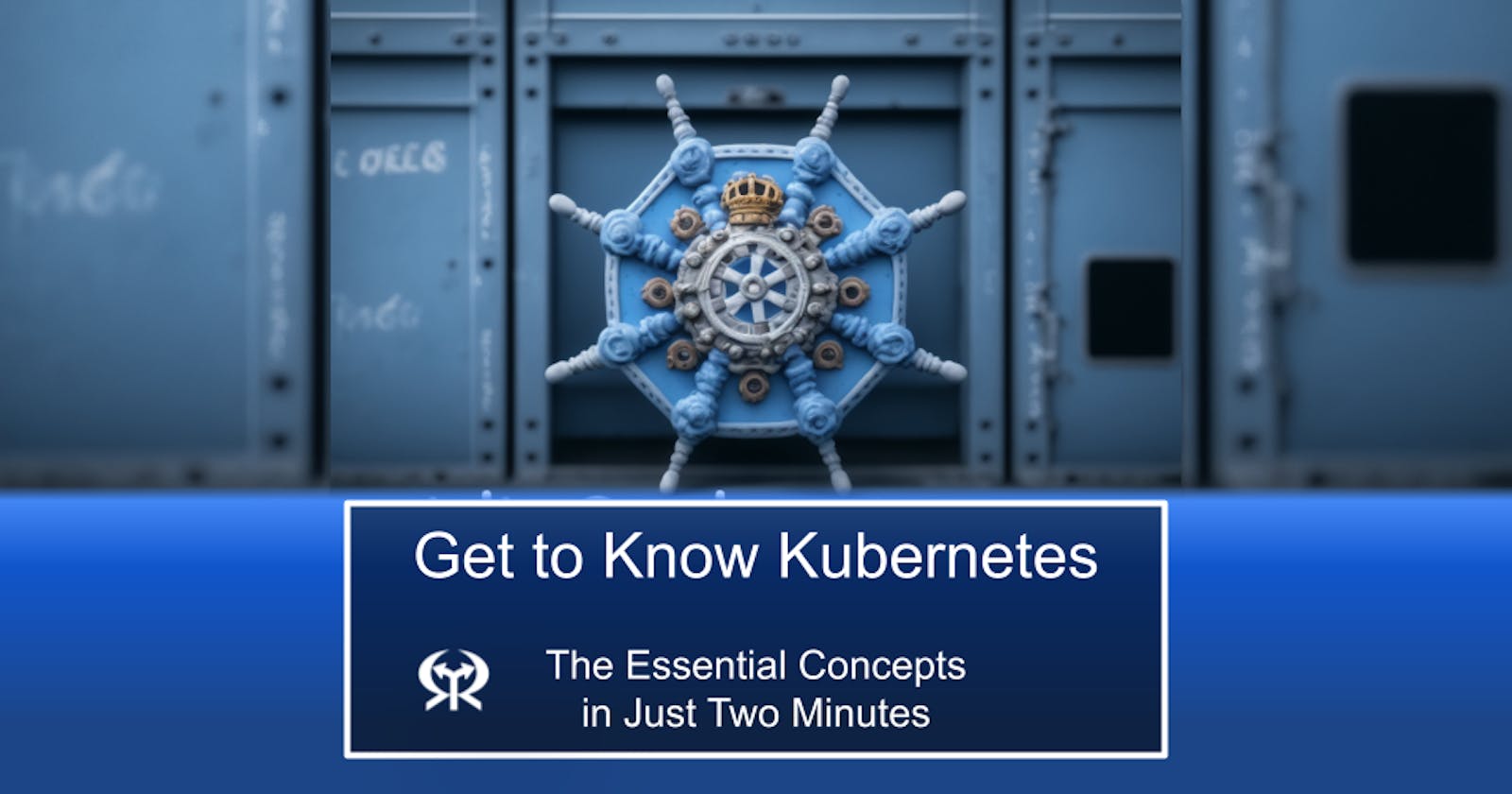Unpacking the Mystery of Kubernetes
A Beginner's Guide to Container Orchestration in 2 Minutes
Get to Know Kubernetes: The Essential Concepts in Just Two Minutes
Kubernetes is a buzzword that has been making waves in the world of technology, but for many, it remains a complex and confusing topic. However, it's important to understand the basics of this powerful tool, especially if you're looking to manage and scale your containerized applications. This blog post will demystify Kubernetes and provide a quick overview of its most important concepts. Whether you're a beginner or just looking for a refresher, this guide will give you the foundation you need to understand this rapidly growing technology in just two minutes (or less). So, grab a coffee, and let's dive in!
Kubernetes Concepts
Kubernetes is an open-source container orchestration system. It helps you manage and scale containerized applications.
Containers are a way to package software in a portable and efficient way. They allow you to run your application on any system that supports the container runtime, without worrying about dependencies or configuration.
Kubernetes provides a way to automate containerized applications' deployment, scaling, and management. It does this by using a set of abstractions, such as pods, services, and deployments.
Pods are the smallest and simplest unit in the Kubernetes object model. They represent a single instance of a running process in your application.
Services provide a stable endpoint for pods, allowing them to communicate with each other and the outside world.
Deployments are used to manage the desired state of your application. They allow you to declaratively manage the number of replicas of your pods and handle rolling updates.
Kubernetes also provides features such as automatic self-healing, horizontal scaling, and load balancing.
Kubernetes can run on-premises, in the cloud, or in a hybrid environment. It is widely adopted and supported by major cloud providers like AWS, Azure, and GCP. RedHat OpenShift is an alternative widely used for Enterprise solutions.
Kubernetes is a powerful and flexible tool, but it can be complex to set up and manage. If you want to receive the latest articles on how to manage and learn more about Kubernetes from a newbie's point of view, Kubernetes in an easy way, then subscribe to our newsletter.
That's a quick overview of Kubernetes, hope it helps you to have a better picture of the main concepts!
Bonus: With K1s, a Kubernetes simulator cluster playground to practice without installation, not limited time, nor a cloud account (i.e. AWS, Google, Azure) is needed. The Kubernetes Serverless cluster.

